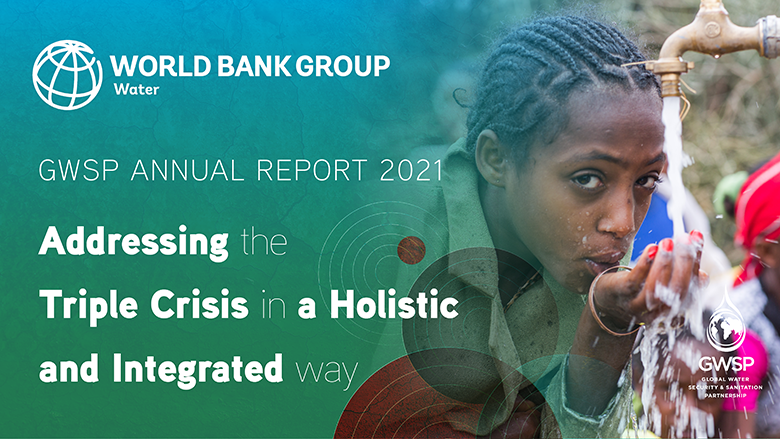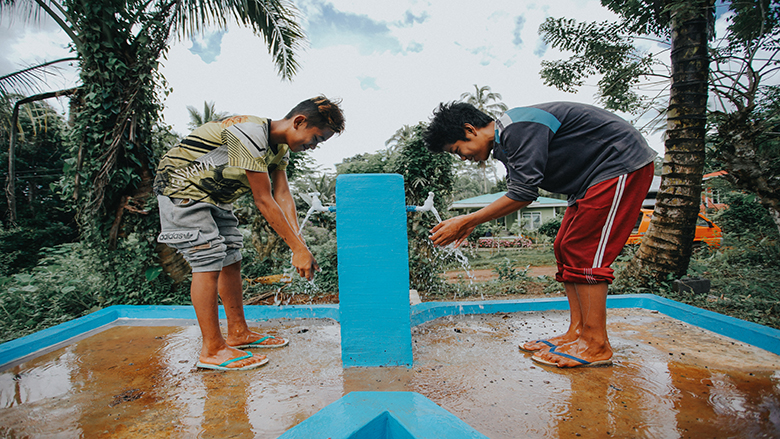Today, about 2 billion people lack safely managed drinking water and 3.6 billion lack safely managed sanitation. If nothing changes, we will not have enough water to meet demand by 2030, making it impossible to achieve SDG 6—safe drinking water and sanitation for all.
At the same time, the effects of climate change are intensifying, wreaking havoc on the world’s water systems as higher temperatures lead to more droughts, floods, and rainfall variability. The situation was further exacerbated in 2020 when COVID-19 hit its peak. Clean water, sanitation, and hygiene are vital for curbing infectious diseases. We need water and sanitation as we work to recover from the significant declines in human health and development resulting from the pandemic. It’s a bleak picture, but not one without hope. There is much being done to tackle the triple crisis, and much more we can still do.
As shown in its latest annual report, available here, the Global Water Security & Sanitation Partnership (GWSP) is making real progress as it works with partners to find solutions and achieve a water-secure world for all. We support countries in delivering water for people, production, and the planet. Some examples of the work we’re doing in partner countries are described below.
Supporting innovative approaches to wastewater in the Dominican Republic
In the Dominican Republic’s province of Espaillat, about 90 percent of the population receive water just two to three days a week. The wastewater collection system has collapsed, and the wastewater treatment plant stopped functioning in 2004 due to lack of maintenance. Working closely with the government, GWSP helped the government consider innovative methods for collecting and treating wastewater, such as simplified sewerage systems that are built and operated in ongoing consultation with end users. Our technical assistance has encouraged the government to consider nature-based solutions, including constructed wetlands. We also supported a World Bank public expenditure review of the water supply and sanitation sector, which has guided high-level discussions on policy reforms and directly informed the government’s Water Pact—the official policy document outlining a 15-year vision for the sector.
Using evidence-based planning to reform Togo’s water sector
In Togo, only 51 percent of the population has access to drinking water. And, at a time when the need for good hygiene is more prevalent than ever, just 17 percent of households have a handwashing facility with soap and water. Municipal water services are struggling to keep up with the need for maintenance and demand for services, with only 32 percent of the capital city’s population currently served. To help address these challenges, the GWSP supported the development of the Togo Strategic Water Diagnostic, a comprehensive analysis of the country’s water, sanitation, and water resources management. The diagnostic has served as a roadmap for the government, leading to concrete policy recommendations to improve the water sector, including an action plan to improve operational and technical efficiency; principles to guide urgent tariff reforms; and broader recommendations on water sector planning and regulation, and sector management in the COVID-19 context.



